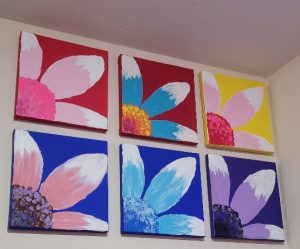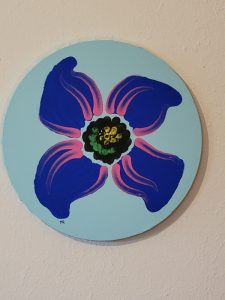This weekend we went to an all-in-one play center – roller skating, laser tag, gigantic jungle gym, escape rooms, etc. It was our first time going there and it was pretty impressive, but our first hour proved to be a little tense.
We started at the roller skating rink and my daughter was really nervous. She did NOT want to skate. I sat at a table with her and colored. I didn’t want to skate either. My sister-in-law and her four kids were all skating; even my out-of-shape, forty-five-year-old husband put on skates. I was certain he was going to break his leg but he didn’t even fall once.
While my daughter and I sat and colored my family constantly pushed her to put on skates. They were relentless. My daughter eventually crawled under the table and I told them to leave her alone.
She never did skate. We moved on to other parts of the center and she happily played with her cousins. The rest of the day she was fine.
Every time I see my daughter get nervous it hurts because I know what that feels like. I was a nervous kid who turned into a very nervous adult. This is one trait of mine I was hoping my daughter wouldn’t get. I want my daughter to try new things and meet new people enthusiastically. I don’t want there to be any missed opportunities for her.
Perhaps if I had put on skates, my daughter would’ve, too. Unfortunately, I’m dealing with my own anxiety and it is so hard to model some sort of confident behavior for her. It’s easy for her to sit and color with me because I always sit and color.
Of course, my daughter has many more of my traits – we’re both very short and our eyes turn to little crescents when we smile. We’re both impatient and love cats. It’s fun and a little weird when you see how much your kid is like you, but I really wish my daughter didn’t have my anxiety.
So how much are your kids like you? Is it good or bad? What do you do when your kids inherit your shortcomings?





